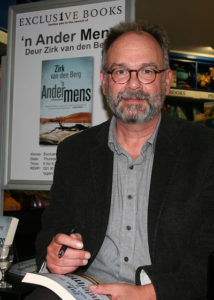Why are books that should be 60 pages long so often 600 pages long, asks author Sam Harris in a recent article. He did so only in passing while building another argument, but it’s a matter worth some consideration.
Harris’s answer is that publishers need the books longer, so they can sell them for more. The suggestion is that there is some practicality about book production that makes it economically attractive to have longer books. But what happens to this justification when you’re dealing with ebooks? And should works of art really be shoehorned into specific preset formats?
The latter question forms the premise of a little known but most worthwhile book by crime writer Charles Willeford. The Woman Chaser is about a man who has a bolt of inspiration and makes a movie that everyone who sees it agrees is a masterpiece.
The problem is it’s 60 minutes long. When he goes to the film distribution companies, they insist he adds 30 minutes to get it to feature film length. When he goes to the TV channels, they insist he cuts 10 minutes or so from it to make it fit into an hour slot with time for ad breaks.
Realising that both these options will destroy his film, the filmmaker sets fire to the only print. As a tragic ending for a book, it rates for me not far below the suicide of the title character in Jack London’s Martin Eden.
While perhaps not as rigid, preset formats exist in the world of books too. Upon hearing that I have a new book in the works, I was once asked if it was going to be “another novella or a proper book”. The supposed novella the speaker referred to was Nobody Dies, which at close on 70,000 words strikes me as being of respectable length for a book of its kind.
My editor at Random House, my publisher at the time, suggested that I aim for 80,000 words in future. Apparently that is how long readers expect crime books to be these days. By contrast, the pulp fiction of 50 or so years ago averaged around 55,000 words only. I have read a great many of those books and never once felt cheated that the book was too short. In fact, I didn’t even realise that they were shorter than today’s equivalents.
I’d like to avoid the hard choices involved in choosing my ten all-time favourite novels, but if I ever do, I’m confident that among them will be at least two very short books. In the edition I have, Vladimir Nabokov’s The Eyeruns to 92 pages, in an above average font size. Scott Fitzgerald’s The Great Gatsby, undoubtedly one of the great novels in world literature, is little over 50,000 words long, as is Joseph Conrad’s Heart of Darkness.
One can only hope that with the growth of ebooks, the paradigms that paper publishers seem to favour will become irrelevant and that it will be possible for authors to publish stories of 40 pages or 4000 pages – whatever it takes to convey what it is they want to convey.
The long and short of it is that there are many short books I’d read twice before reading a book of twice that length once.
